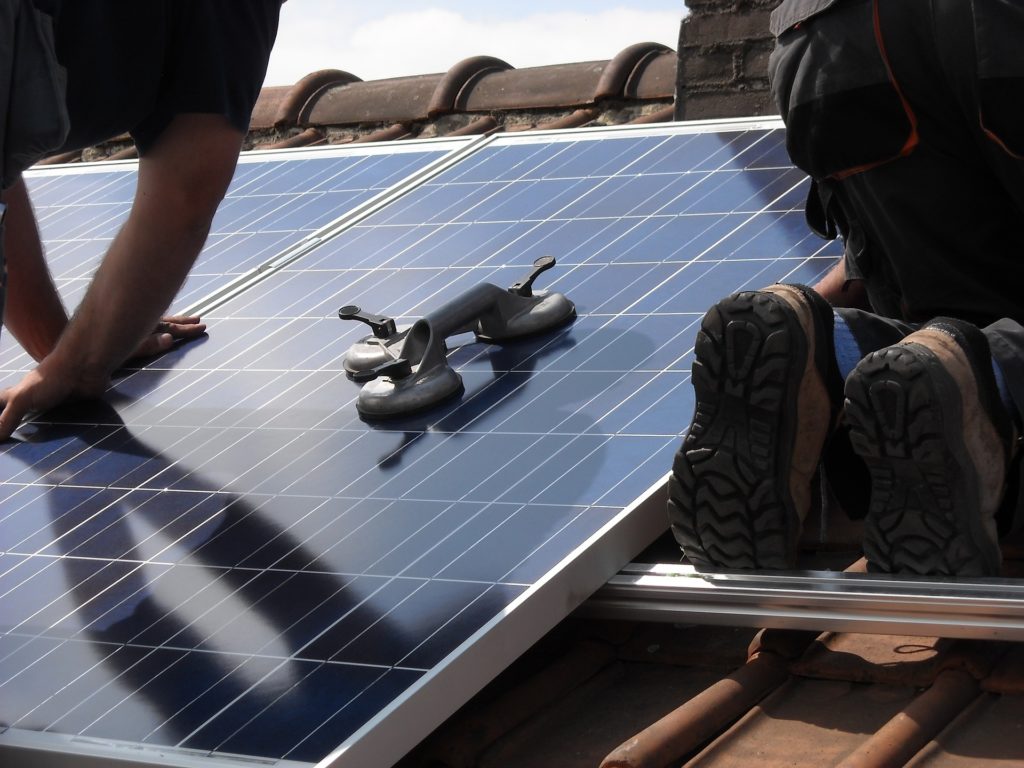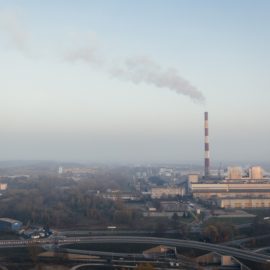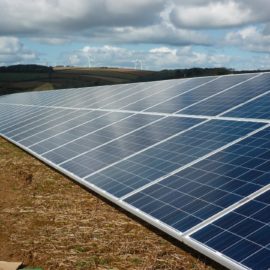
St James parish seems to be flirting with solar. A temporary moratorium may become longer term. Or is it NIMBY (not in my back yard).
St. James Parish officials are taking another crack at a temporary, parish-wide moratorium on large-scale, commercial solar farms while they study their long-term impact and craft rules to regulate their development. If adopted later this month, the moratorium would last until the analyses are done or March 31, 2023, if more time is needed for the work, parish officials said. Proposals to build three solar farms on several thousand acres in the rural west bank community of Vacherie has stirred backlash from some residents worried about aesthetics and noise. The farms have also raised worries from the parish president and other officials that the low-job-producing operations might not be the best use of valuable open Mississippi River land in the heart of Louisiana’s chemical corridor. The mix of concerns has created common cause between some parish officials who, despite public opposition in the past, had backed other large, more job-intense industrial proposals for rural land in St. James and other officials who had worries and even opposition to those kinds of plans, even as environmental advocates had urged parish officials not to halt opportunities for green, renewable energy like solar power. “I mean if it’s such a good idea and such a good, new wave of the future, waiting eight months ain’t gonna hurt it for the next 50 years,” said Parish President Pete Dufresne, who has backed other industrial projects for the parish.
theadvocate.com
Jobs, Jobs and Jobs. Solar does not have many. But noise? Maybe in construction. Go chemical and pollution and all the ills it brings with the money made.
A primary concern for Dufresne is the lack of jobs the farms will offer. D.E. Shaw Renewable Investments has proposed building 3,900 acres of solar farms through three projects in Vacherie, but the operations would generate just six jobs. Backers, however, have touted the facilities’ sales and long-term property tax benefits, and utility officials say demand from existing industries on the river and elsewhere is driving interest in solar farms popping up in rural areas of Louisiana. Entergy Louisiana would use the power from the new farms in St. James, which were rejected by the Planning Commission in May. The moratorium would apply to commercial solar installations of three acres or more but not to solar panels that serve individual homes, businesses or other small-scale operations. “Let’s say Matherne’s grocery store put solar panels on the roof. This would allow it just normally under the land use plan,” Victor Franckiewicz Jr., the parish land use attorney, told the council Wednesday night.
The council backs the president of the parish.
The entire seven-member council backed the moratorium in a preliminary vote on Wednesday night in Convent, unlike a moratorium vote in early July. Then, the Parish Council was split and deferred a vote on the moratorium proposed by Dufresne and some councilmen. That proposal had emerged right before the council meeting in July, catching some officials by surprise. To complicate matters, Franckiewicz, the land use attorney, proposed a detailed amendment the night of the meeting to vote on the solar halt. The council directed Dufresne then to seek out plans to do the analyses while members studied the moratorium concept further. Fast forward a month, parish officials say they have worked out plans to have their existing planning agency, the South Central Planning and Development Commission based in Houma, study solar farms’ economic and environmental impact and also help them craft new land use rules for solar operations larger than three acres. Councilman Jason Amato told fellow members that South Central Planning officials believe the studies, ordinance writing and public hearings should take about eight months, or about until the March 2023 timeframe. Tripp Roy, director of development for D.E. Shaw, also known as DESRI, declined to comment on the moratorium idea but said his company want to continue to work with parish officials. “We continue to support the parish seeking an economic and environmental study and, as long as it’s reasonable, we also support a solar siting ordinance to be passed within the existing land use plant,” he said.
St James is not the only parish that has had the same thoughts.
Other parishes in Louisiana have adopted moratoria on the farms to build their own rules, including requirements for buffers, fencing and long-term financial securities for the facilities’ removal when their usefulness ends. In conservations with Roy after the council meeting, Amato said one concept that may be considered is a specific land use category for commercial solar operations. St. James’ land use rules don’t currently have one. Some parish officials, like Councilman Donald Nash, have worried an industrial-based approval for a solar farm under the current, unmodified rules could open agricultural farmland near homes to a variety of other objectionable uses. Councilman Nash, who represents the Vacherie area, opposed the earlier moratorium last month, he said, because he wanted more time to evaluate the idea. “I wasn’t clear on the purpose, and I didn’t want to go and move forward with something I wasn’t comfortable with,” he said. After speaking with Franckiewicz, the parish attorney, Nash said it seems more than fair to study the parish process of reviewing solar farms before they come up for approval.
Do the residents of the parish want solar?
Nash says he isn’t against solar farms generally but doesn’t like where the D.E. Shaw farms are proposed. He said not one resident from his council district has come up to him in support of the large solar farms. He and others are worried about depreciation of their homes if the large facilities are located next to them. “If it’s a location where it’s not going to affect the residents, that would be one thing, but if you are going to affect the residents and depreciate the property value, that’s not right – to benefit only a certain few,” Nash said. Dufresne has aired some concern with the proposed sites also because of their proximity to the La. 20/La. 3127 intersection, where new road improvements are planned and long-term hopes for commercial development exist. DESRI officials have said they could put in sizeable setbacks to preserve the highway corridors for commercial growth.
This moratorium is stronger in law than the partial one.
The stripped-down version of the moratorium that has garnered early support from the full council is proposed as an ordinance. If adopted, it would have the force of law. The earlier moratorium was a resolution, which was weaker, expressing the will of the council but without legal teeth. Unlike a resolution, an ordinance takes not one but two votes and a public hearing. The final vote won’t happen until Aug. 17 in Vacherie, parish officials said.
Solar has advantages and it has problems. The main problem is a lot of land and few jobs.



